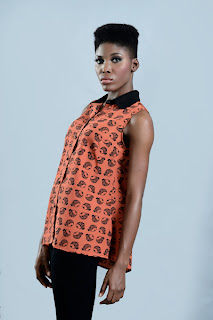The state of the textile industry in Africa is truly disheartening. In Nigeria alone, over 776,000 jobs have been lost within the last decade.
According to Dr Samuel Ortom Minister of State for Trade and Investment, "Nigeria once had a very vibrant textile and garment sub-sector with fixed investment of $4bn second only to South Africa, in sub-Saharan Africa, and was third largest in Africa....it also had 63 percent capacity of textile manufacturing in West Africa and controlled 60 per cent of the textile market in Nigeria. Within the same period, the sub-sector had 175 fully functional mills that employed over 800,000 people"
With countries like the USA offering trade incentives, such as the African Growth and Opportunities Act (AGOA), one would think this would stimulate and encourage stakeholders within the industry to maximise cross border trade partnerships and save the flailing industry.
Alas. That is not the case. Although many countries within Africa have benefited greatly from AGOA and other such trade levies, this has not been the case in West African countries, specifically with respect to the textiles/garment apparel industry. This is due to various reasons - influx of foreign textiles into the market being the largest one of all.
Another reason was recently highlighted by the Financial Times, UK which cited a paper from the
Centre for the Study of African Economies suggesting that savvy Chinese companies have set up shop in Africa as a route to get their products into the USA, with the added incentive of all the juicy AGOA benefits.
My Asho encourages all its designers to produce their products ethically and to work towards creating employment across Africa, stimulating local economies, supporting women in the workplace. We understand that it is tempting to outsource production but in the long run, we will only further damage the African economy and make things so much more difficult for ourselves.
To our customers and visitors to our site, it is not easy. We cannot emphasize the amount of hard work that goes into designing, producing and marketing each and every item sold on our Site. These products are made either by the designers themselves, or the small teams they work with. We are not Primark or Walmart, so please don't compare our costs. Instead, perhaps think of the story behind each product, the lives you affect by purchasing from each designer. We truly are trying to create sustainable businesses across Africa - we are very small but we have big hopes.
Sources:








